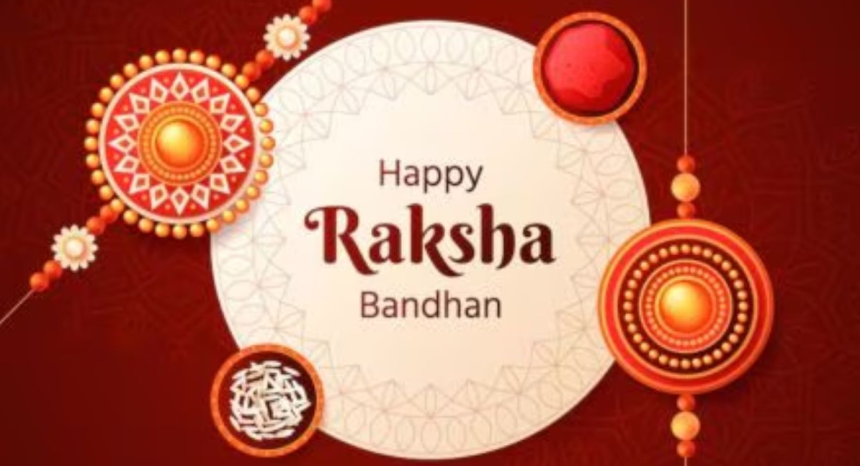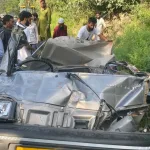Raksha Bandhan, a festival celebrated with much fervor across India, carries a profound cultural significance. Traditionally, it is a day when sisters tie a rakhi (a sacred thread) around their brothers’ wrists, symbolizing their love and prayers for their well-being. In return, brothers vow to protect their sisters from all harm and adversity. This festival, rich in symbolism, is not just a ritualistic celebration but a deep-rooted cultural practice that has evolved over centuries, carrying with it values of familial bond, duty, and protection.
However, as we stand in the 21st century, the question arises: Have we truly internalized the essence of Raksha Bandhan? In a world where news of violence against women, gender inequality, and systemic injustices towards women make headlines almost daily, how relevant is this promise of protection? This write-up aims to explore the significance of Raksha Bandhan in contemporary times and examine whether the values it promotes are being upheld in a society where the safety of women remains a critical issue.
To understand the significance of Raksha Bandhan in today’s world, it is essential to delve into its historical roots. The festival finds mention in various legends and historical accounts. One of the most popular stories is that of Rani Karnavati of Chittor, who sent a rakhi to the Mughal Emperor Humayun, seeking his protection when her kingdom was under siege. This story highlights the symbolic importance of the rakhi as a call for protection in times of dire need.
Historically, the festival has also been about the reinforcement of familial ties and the brother’s responsibility towards his sister. It was a reminder of the social obligation to protect women, not just within the family but within the community as a whole.
In contemporary times, the promise of protection symbolized by Raksha Bandhan holds a different connotation. The societal structure has transformed, and so has the dynamic between men and women. Women today are more independent, self-reliant, and are breaking barriers across various fields. Despite this progress, the safety and security of women remain pressing issues.
Reports of crimes against women—ranging from domestic violence to heinous crimes like rape—are disturbingly common. According to recent statistics, cases of violence against women have been on the rise, with many incidents going unreported due to fear of social stigma, lack of support systems, and systemic failures. This reality starkly contrasts with the promise of protection that Raksha Bandhan embodies.
In this context, Raksha Bandhan serves as a poignant reminder of the responsibilities that come with the festival. It is not merely about a symbolic gesture but a call to action. Brothers, and by extension, all men in society, need to introspect whether they are upholding the values this festival stands for. Are they playing an active role in ensuring the safety and dignity of women in their lives and communities?
Raksha Bandhan, in its true spirit, extends beyond the ritualistic tying of the rakhi. It is about a lifelong commitment to support and stand by one’s sister. This support is not just in moments of crisis but in everyday life. It is about respecting her choices, supporting her dreams, and standing against societal norms that seek to oppress or limit her.
In contemporary times, the role of a brother should also evolve. It should include advocating for gender equality, challenging patriarchal norms, and working towards creating a society where women feel safe and empowered. This responsibility is not just towards their biological sisters but towards all women.
The festival should inspire men to become allies in the fight against gender-based violence and discrimination. It should encourage them to speak up against misogyny, support women’s rights, and contribute to creating a safer environment for women. The protection promised on Raksha Bandhan should translate into actions that ensure women are free from the fear of violence, harassment, and discrimination.
The contemporary landscape of women’s safety is a mixed one. On the one hand, there has been significant progress in terms of laws and policies aimed at protecting women. The establishment of helplines, stricter laws against domestic violence, sexual harassment, and workplace discrimination are steps in the right direction. The #MeToo movement has also played a crucial role in bringing to light the pervasive issue of sexual harassment and assault, empowering many women to speak up against their perpetrators.
However, the implementation of these laws and the societal attitude towards women’s safety remains a challenge. Many women still face barriers in accessing justice, and there is often a lack of sensitivity in handling cases related to violence against women. The cultural mindset that perpetuates the idea of women as secondary to men and the normalization of certain forms of violence further complicate the situation.
The idea of protection should not be limited to physical safety alone. It should also encompass the emotional and psychological well-being of women. The rising cases of cyberbullying, online harassment, and the misuse of digital platforms to threaten and demean women are areas that need urgent attention. In today’s digital age, protecting women also means ensuring they can navigate the online world without fear of harassment.
As we celebrate Raksha Bandhan, it is imperative to reflect on the true meaning of the festival. It is a time to question whether we, as a society, are doing enough to protect our sisters. It is a moment to ponder the role of brothers not just as protectors but as advocates for women’s rights.
The festival should serve as a reminder that the promise of protection is not just a one-day affair but a lifelong commitment. Brothers should actively engage in creating a society where women are not just safe but are also respected and valued for who they are. This includes challenging the status quo, supporting laws and policies that protect women, and raising awareness about the importance of women’s safety.
Raksha Bandhan should also be a time to empower sisters. Brothers should encourage their sisters to be strong, independent, and fearless. They should support their aspirations and be there for them not just in times of adversity but in their everyday lives. The festival should inspire a bond of mutual respect and support, where both brothers and sisters work together towards building a better and safer society.
The Broader Implications of Raksha Bandhan
The significance of Raksha Bandhan extends beyond the familial bond. It is a festival that speaks to the larger values of community, protection, and support. In today’s world, where individualism often overshadows communal responsibility, Raksha Bandhan reminds us of the importance of standing by one another.
The festival can also be seen as a symbol of the need for societal change. It calls upon us to build a world where protection is not just the responsibility of brothers but of the entire community. It urges us to create environments—both physical and digital—where women feel safe and secure.
Raksha Bandhan is more than just a festival; it is a reflection of the values that form the bedrock of our society. It reminds us of the duty we have towards our sisters, not just in terms of protection but in ensuring their well-being in every aspect of life. In contemporary times, where the safety of women is still a significant concern, Raksha Bandhan calls upon us to introspect and take action.
The promise made on Raksha Bandhan should not be a hollow one. It should be a pledge to work towards a society where every woman can live without fear, where her rights are respected, and where she is valued as an equal member of society. Brothers should lead by example, showing that the protection they offer is not just physical but also emotional, psychological, and societal.
This Raksha Bandhan, let us not just celebrate the bond between brothers and sisters but also commit to making the world a safer place for all women. Let it be a reminder that true protection comes from creating a society that respects and values women, where their safety is guaranteed not by the strength of one man but by the collective efforts of the entire community.
(Author is a columnist and can be reached at: [email protected])








